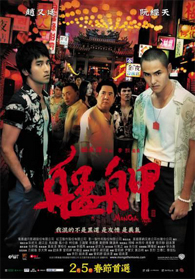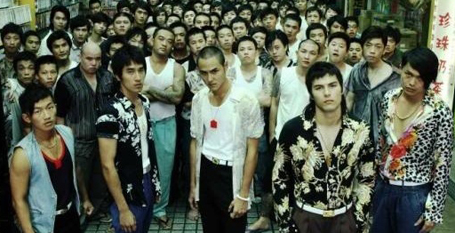
Which is the best gangster film in the history of cinema? It could very well be Godfather, but Cidade de Deus might have an edge among folks familiar with more recent films. Recently though, I have had an interesting experience watching Monga, which feels like the first act of Coppola’s Godfather transplanted on to Taipei in the 80’s, but shot with the kinetic visual style of Cidade de Deus, told like an afternoon Taiwanese soap, and with enough homoerotic undertones to pepper the movie.
The period piece covers the mid 1980s, just before the historic Monga district in Taipei was ‘cleaned up’ of its gang culture and associated protection and vice rackets in a series of police stings. In this seeming heyday of the gangs, Air Supply ruled the airwaves, Chu Yin-ping’s films ruled the silver screen, tight shirts were fashionable wear, and tea dances were you wanted to be seen after school hours. That’s plenty of convincing period details and feel to immerse in, and is one of the strongest points of this film.
But for a scion of a gang boss and his coterie, it’s also the time where they come of age, where their new generation will continue the honourable tradition (like Vitto Corleone’s don, Ma Ju-lung’s boss insists on no guns and no drugs) – if they should survive their rites of passage and hands-on training in the all-too-frequent gang warfare in the back streets of Monga. And like Godfather, the young ones will also need to survive certain developments in the industry, such as a mainland Chinese gangs headed by Doze Niu himself, eager for a piece of the pie.
Add some lingering homoerotic jealousy into the dynamic of the five very handsome principal characters, amidst trips to the sauna, half-naked wrestling and other male bonding activities, and you’d start worrying about the survivability of the gangsters too.
Director Doze Niu’s devotion to details ensures that the film does evoke the authentic feel of both the 80s as well as the gang and youth cultures of the period, with few missteps like missing out the entire 小虎队 songbook (perhaps Air Supply charged lower royalties), or the laggy pacing of the first act, which was compounded by too showy editing.

